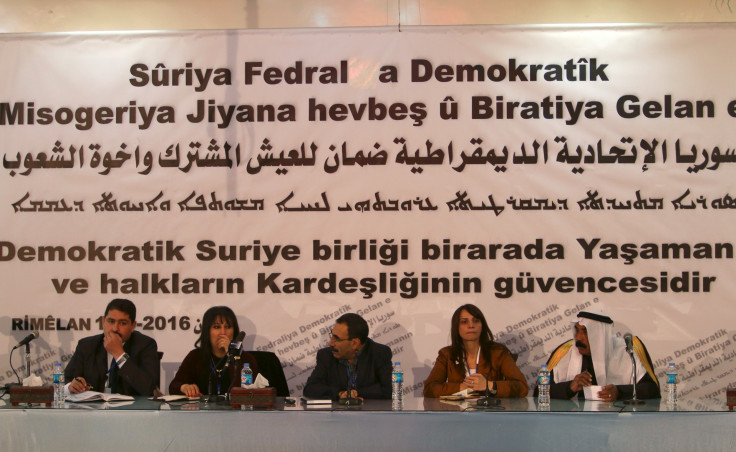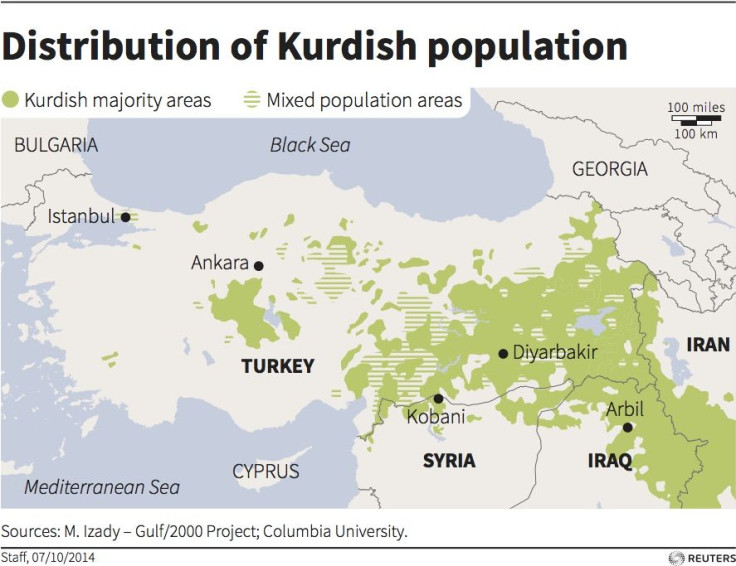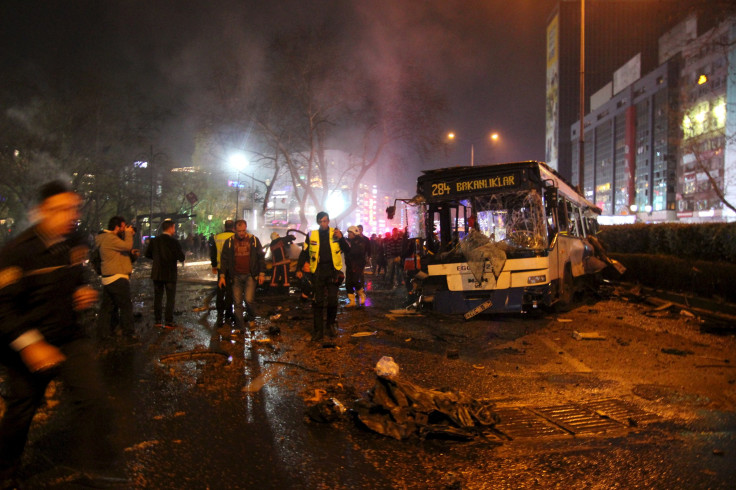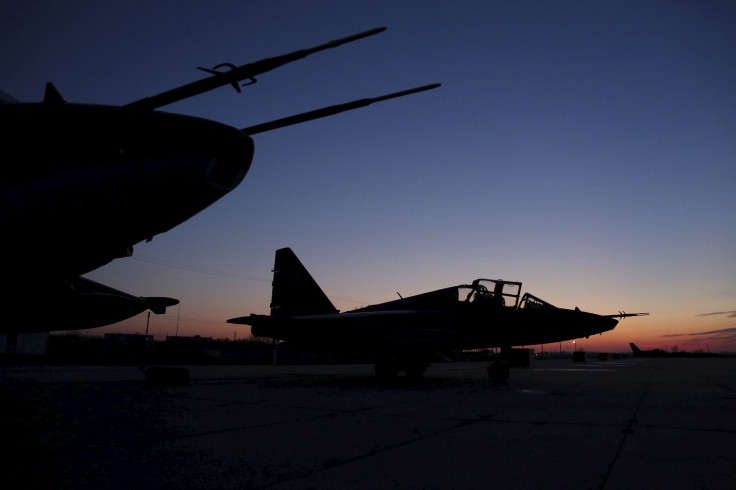Syrian Civil War: Kurdish autonomy calls rejected by Turkey
Turkey wary Kurdish autonomy in northern Syria will strengthen PKK separatism drive

Kurdish representatives are expected to declare a federal autonomous region in northern Syria on Thursday in a move that will further deepen tension between Kurdish groups and Turkey.
The Syrian Kurdish Democratic Union Party (PYD), which was excluded from the UN peace talks being held in Geneva this week at the behest of Turkey, announced plans to create a federal state that would combine three autonomous zones in the north of country, known by the Kurds as Rojava.
The area encompasses half of Syria’s border with Turkey, from the Euphrates river to the Iraqi border, where it meets a well-established Kurdish autonomous stronghold in northern Iraq.
Idris Nassan, a former leader within the PYD and a Kurdish official, stressed that federalism in the Kurdish controlled north was the only way ensure a democratic future for the Syrian state.
"Federalism should be the future not only for northern Syria or the Kurdish regions but for Syria in general, because under federalism democracy and equality will be guaranteed,” he said, speaking to Al Jazeera from Kobani.
Turkey has rejected the Kurdish proposal for federalism, with a Foreign Ministry source stating that “Syria's national unity and territorial integrity is fundamental for us".
The Kurds are thought to be the largest ethnic group in the world without a nation, and live primarily across and within the borders of Western Iran, Northern Iraq, Southeastern Turkey and Northern Syria, with a worldwide diaspora. Globally they are thought to number around 35 million people.
They are a substantial minority group in Turkey and are successfully autonomous in Northern Iraq. Clashes between Turkey and the Kurdistan Worker’s Party (PKK), a group fighting for Kurdish autonomy, have been sporadic over the last 30 years.

A withdrawal of PKK troops from Turkey to Iraq in 2013 signalled a thaw in Turkish-PKK relations, but riots in 2014 over supposed Turkish inaction during the Siege of Kobani, where Syrian Kurds sustained attacks from the so-called Islamic State (IS), reignited tension.
Turkey views the Syrian PYD as indistinct from the PKK, with both the European Union and NATO previously designating the PKK as a terrorist organisation.
Siamend Hajo, a member of the Foreign Relations Office of the Kurdish National Council in Syria (KNC) -- an opposition group established at the beginning of the Syrian Civil War -- believes that federalism will help rebalance a region devastated by five years of war.
“The KNC will argue for a Kurdish federal state including the predominantly Kurdish regions of the Jazirah, Afrin and Kobanî,” said Hajo, speaking to International Business Times Australia contributor and editor of ViewsAround, Manish Rai.
“We strongly believe that in fragile states that suffered from a civil war, political decentralisation can help to stabilise state and society.”
PYD not representative of Syria’s Kurds: Hajo

Hajo also rejected claims that Kurdish representatives were not included in the Geneva discussions after the exclusion of the PYD.
“Kurdish parties are invited. The KNC is represented in the opposition delegation to the talks,” Hajo said.
“Unfortunately, the press uncritically repeats the false Russian and American stance according to which ‘the Kurds’ are not invited to the talks, actually meaning that the PYD is not invited.”
“I think it is dangerous if the press conveys the impression that ‘Syria's Kurds’ are equivalent to the PYD. Such an equation causes a discursive subordination of Syria's Kurds to a political party which is accused of human rights violations on a regular basis.”
A major stalling point of previous peace talks has been the role Syrian president Bashar Al-Assad plays in the future of the country, with opposition groups adamant he has no position as part of a future Syrian state. The KNC is unequivocal in its stance towards Assad, with Hajo declaring “there is no role he can play in the future of Syria”.
Plans for Kurdish autonomy in northern Syria will alarm Turkey, who are concerned that Kurdish self-governance south of its border will bolster calls for Kurdish separatism within Turkish territory.
Responsibility for a blast that killed 37 people in the Turkish capital Ankara on Sunday was attributed to the PKK by the Turkish government. Air strikes against Kurdish groups in northern Iraq were conducted in response to the attack. No group has claimed responsibility for the bombing.

News of the Kurdish announcement comes after a frenetic week of activity surrounding the Syrian conflict, which on Wednesday entered its fifth year.
On Monday, Russian president Vladimir Putin announced a significant downsizing of its military operations in Syria, declaring that Russian objectives had “on the whole been accomplished”. Some analysts believe the Russian move was a surprise to the Assad regime.

Putin’s announcement came as UN peace talks between warring factions resumed in Geneva this week. A fragile ceasefire brokered by the United States and Russia and implemented last Friday has been largely maintained.
At least 250,000 people are thought to have been killed since the Syrian conflict began in 2011. Millions of people have been displaced, triggering the biggest refugee crisis since the Second World War.





















